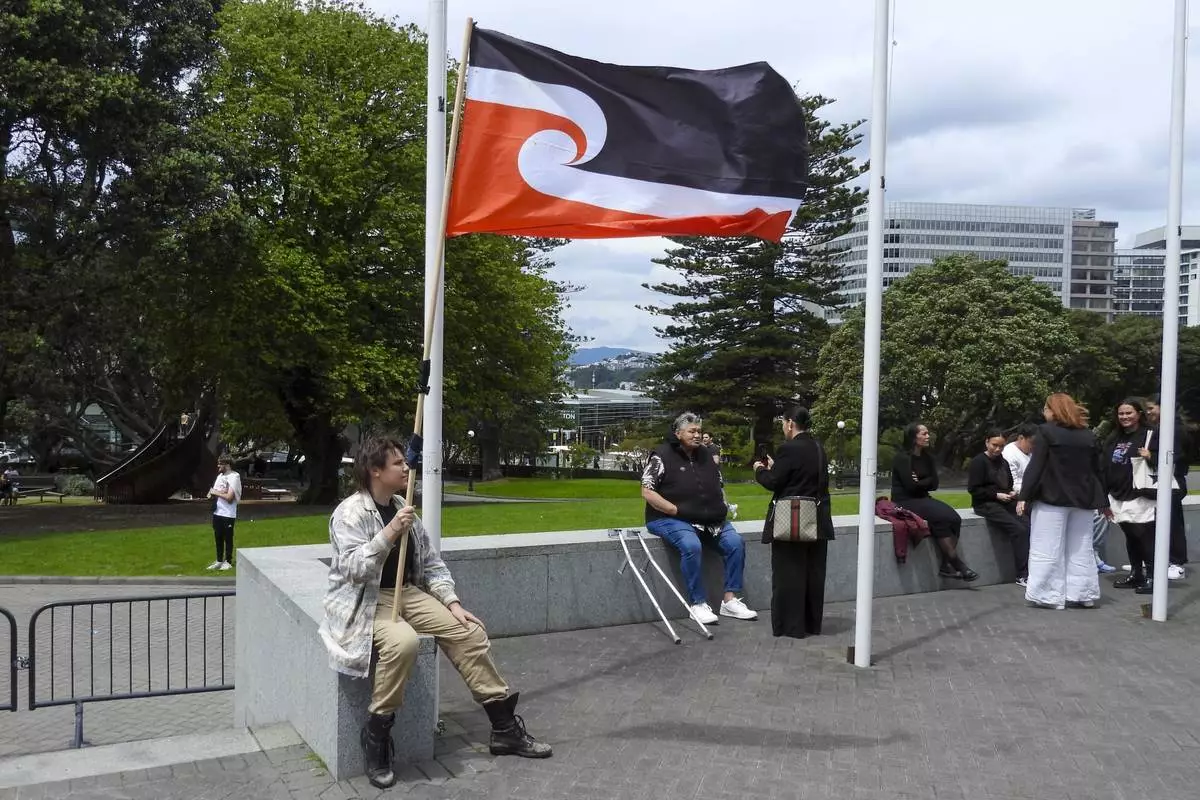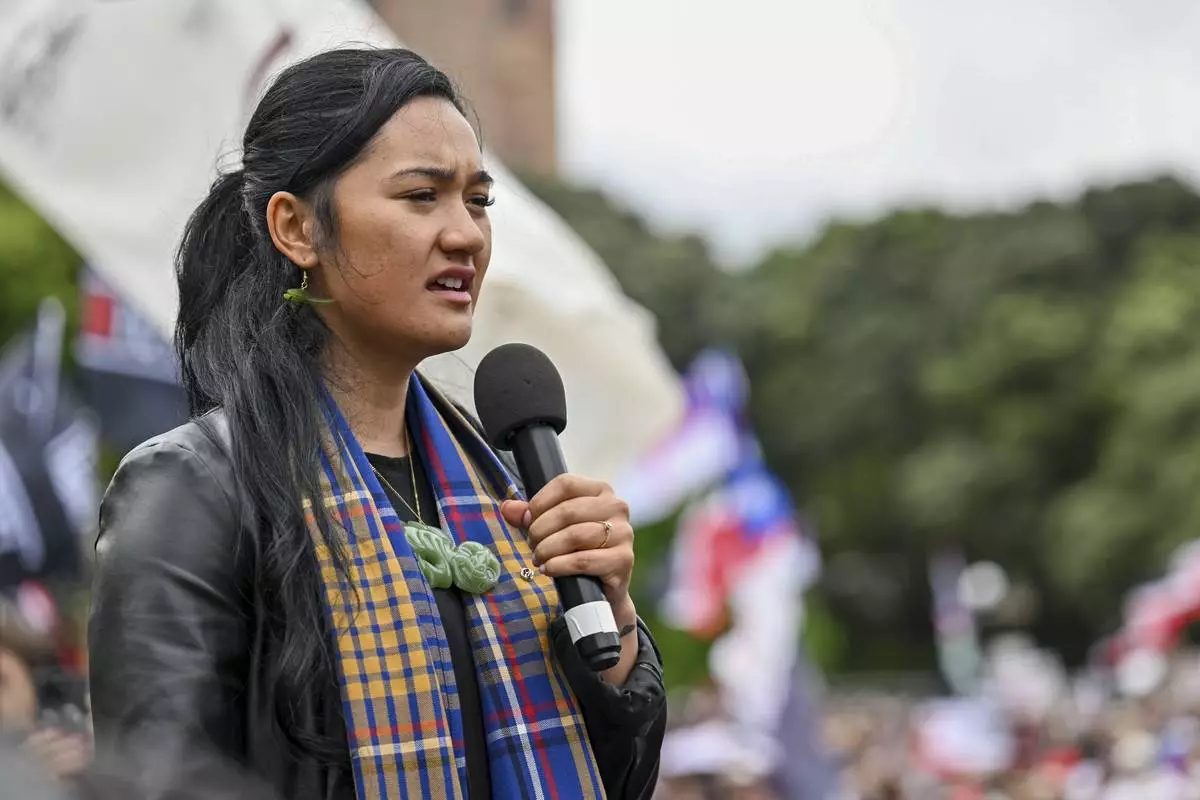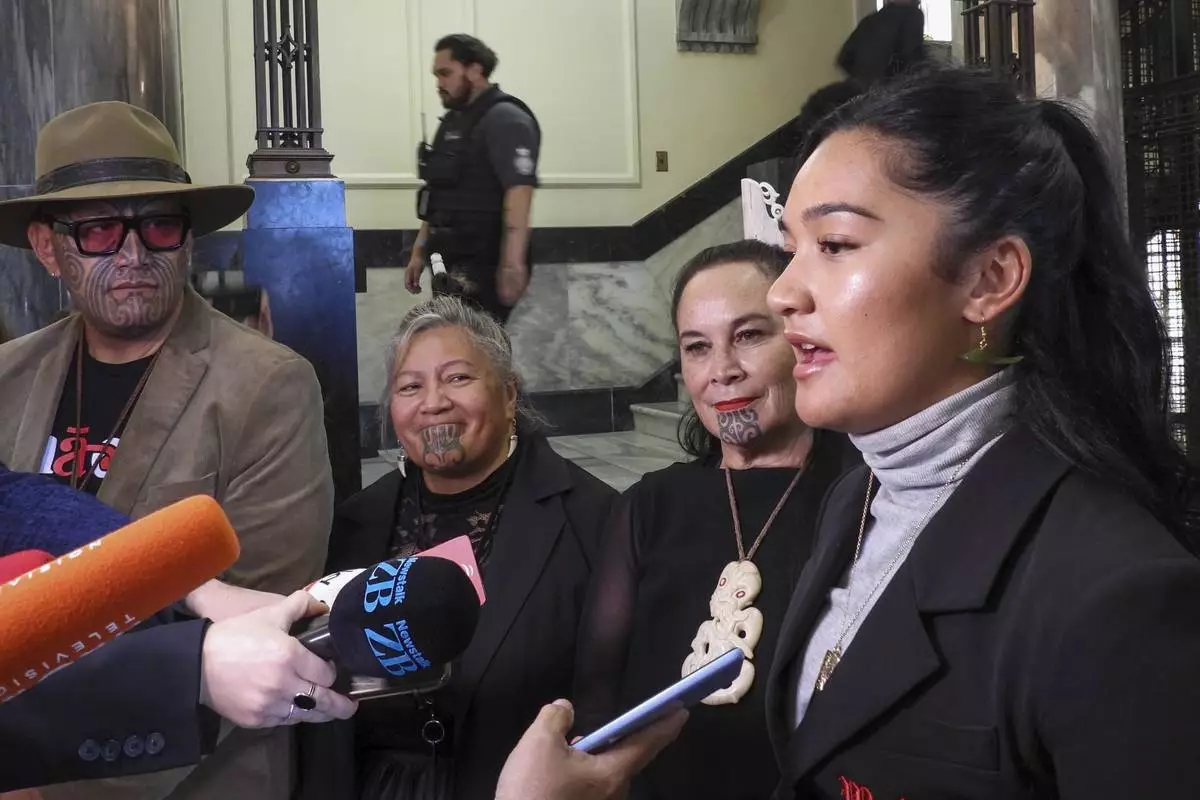HENDERSON, Nev. (AP) — For an offensive line with so many questions, left tackle Kolton Miller is one of the few uncertainties even though he missed nearly all of the offseason and preseason while recovering from shoulder surgery.
That's how well Miller has performed for the Raiders and how much leadership the team's best offensive lineman brings to Las Vegas.
“There's not a lot of people like him in the NFL and the world in general,” center Andre James said. “Having a person who's that big and can move and bend the way he does, he's a special person. Watching him go against Maxx (Crosby) and some of these players, it's like, ‘Wow, he hasn’t missed a beat.' He's been gone for so long. It's pretty cool.”
Miller entered training camp on the physically unable to perform list, but was removed Aug. 20 and practiced the following night for the first time.
He didn't seem concerned if he would be able to step in and play up to his usual standards. Pro Football Focus rated him as the league's 10th-best tackle.
“As far as the sets and everything and the footwork, it all feels like riding a bike again,” Miller said. “I feel good. It's just working the combinations together, just working as an offense.”
The Raiders badly need him back given the many unknowns before their season opener Sept. 8 at their AFC West rival Los Angeles Chargers.
He and James are the only ones who return to their same positions from last season's team.
At left guard between James and Miller, the Raiders likely will go with nine-year veteran Cody Whitehair, who has been working at the position with Jackson Powers-Johnson out nearly all of camp with an undisclosed injury. Powers-Johnson, a second-round draft pick this year out of Oregon, returned two weeks ago and is expected to eventually take the spot.
Miller has worked with Powers-Johnson on the side.
“He's on it,” Miller said. “He's getting as much work as you can. He's on the right track. He's a smart kid, so for him, he's just got to get the reps. But he's making strides each day.”
There also are questions at both positions on the right side, particularly at tackle where Thayer Munford has been pushed by rookie DJ Glaze, selected in the third round this year out of Maryland. Munford remains No. 1 at the spot that was occupied the past two seasons by Jermaine Eluemunor, who signed in the offseason with the New York Giants.
Dylan Parham started at left guard the past two seasons, but switched to the right side. That's the position Parham played at Memphis.
Then thrown into the mix that the Raiders are running a new system under first-year offensive coordinator Luke Getsy.
“Protection-wise, it's not too crazy, so it's not too different to pick up," Miller said. “It's adjustable. That's what I really like.”
He also is getting used to a new quarterback after Gardner Minshew beat out Aidan O'Connell for the starting job.
Miller, however, has been through this experience. O'Connell replaced Jimmy Garoppolo at midseason last year. The year before, Jarrett Stidham stepped in for Derek Carr for the last two games.
“It's year seven,” Miller said. “I was taking reps out there. I was like, ‘Oh, it’s just like before.' I've just got to get the work in with the boys.”
Coach Antonio Pierce expressed confidence Thursday that tight end Brock Bowers, drafted 13th overall this year out of Georgia, will play in the opener.
Bowers has not practiced in the past two weeks because of a foot injury, but Pierce indicated much of the reason was precautionary.
“I’m going to go back to protecting the young guy,” Pierce said. "Sometimes you have got to be smart and sometimes you have got to protect them from themselves, so that’s all it is.”
AP NFL: https://apnews.com/hub/nfl

FILE - Las Vegas Raiders tackle Kolton Miller (74) enters the field before playing against the New England Patriots in an NFL football game, Sunday, Oct. 15, 2023, in Las Vegas, Nev. (AP Photo/Jeff Lewis. File)

FILE - Las Vegas Raiders offensive tackle Kolton Miller (74) plays during the first half of an NFL football game against the New York Giants, Sunday, Nov. 6, 2023, in Las Vegas. (AP Photo/Rick Scuteri, File)
WELLINGTON, New Zealand (AP) — A New Zealand parliamentary committee has recommended the unprecedented suspensions of three Māori lawmakers for performing a protest haka in the debating chamber last year.
The haka is a chanting dance of challenge of great cultural importance in New Zealand, and the three lawmakers from Te Pāti Māori, the Māori party, performed one to oppose a controversial bill that would have redefined the country’s founding document.
A committee Wednesday recommended record suspensions and severe censure — the harshest penalties ever assigned to New Zealand parliamentarians — after finding the trio in contempt of Parliament.
Government bloc lawmakers, who hold the majority, are expected to endorse the penalties in a vote Tuesday. But Parliament’s Speaker Gerry Brownlee took the unusual step Thursday of saying he would first allow unlimited debate before the vote due to the severity of the proposed punishments.
The recommendations were the latest twist in the fraught saga over the bill, now defeated, that opponents said would have provoked constitutional havoc and reversed decades of progress for Māori, New Zealand’s Indigenous people.
Video of the legislators in full cry drew global attention last November. The bill they opposed was vanquished at a second vote in April.
However, some lawmakers from the center-right government objected to the Māori Party legislators’ protest during the first vote and complained to parliament’s speaker. At issue was the way the trio walked across the floor of the debating chamber towards their opponents while they performed the haka.
“It is not acceptable to physically approach another member on the floor of the debating chamber,” Wednesday’s report said, adding that the behavior could be considered intimidating. The committee denied the legislators were being punished for the haka, which is a beloved and sacred cultural institution in New Zealand life, but “the time at and manner in which it was performed” during a vote, according to the findings.
The committee deciding the fate of the lawmakers has members from all political parties. The government’s opponents disagreed with parts or all of the decision but were overruled.
“This was a very serious incident, and the likes of which I have never seen before in my 23 years in the debating chamber,” said the committee's chair, Judith Collins.
The three legislators didn’t appear before the committee when summoned in April because they said Parliament doesn’t respect Māori cultural protocol and they wouldn’t get a fair hearing.
“The process was grossly unjust, unfair, and unwarranted, resulting in an extreme sanction,” Māori party spokesperson and lawmaker Mariameno Kapa-Kingi said in a statement. “This was not about process, this became personal.”
The report recommended that Hana-Rāwhiti Maipi-Clarke, who at 22 is New Zealand’s youngest lawmaker, be suspended from Parliament for seven days. The co-leaders of her political party, Rawiri Waititi and Debbie Ngarewa-Packer, face 21-day bans.
Three days is the longest a lawmaker has been barred from the House before. Suspended legislators are not paid during their bans.
Waititi and Ngarewa-Packer, the leaders of the party that advocates Māori rights and holds six of Parliament’s 123 seats, have lambasted the committee’s process as intolerant of Māori principles and identity.
The pair received more severe sanctions than Maipi-Clarke because the younger lawmaker had written a letter of “contrition” to the committee, the report said.
The Principles of the Treaty of Waitangi Bill sought to redefine New Zealand’s founding document, the 1840 pact between the British Crown and Māori leaders signed during New Zealand’s colonization.
The English and Māori language versions of the treaty differed, and the Crown immediately began to breach both, resulting in mass land thefts and generations of disenfranchisement for Māori, who remain disadvantaged on almost every metric. But in recent decades, Māori protest movements have wrought growing recognition of the Treaty’s promises in New Zealand’s law, politics and public life.
That produced billion-dollar land settlements with tribes and strategies to advance Indigenous language and culture. Such policies were the target of the bill, drawn up by a minor libertarian party who denounced what they said was special treatment for Māori as they tried to rewrite the treaty's promises.

FILE - A protester against the Treaty Principles Bill sits outside Parliament in Wellington, New Zealand, Thursday, Nov. 14, 2024. (AP Photo/Charlotte Graham-McLay, File)

FILE -Hana-Rāwhiti Maipi-Clarke speaks to the thousands of people gathered outside New Zealand's parliament to protest a proposed law that would redefine the country's founding agreement between Indigenous Māori and the British Crown, in Wellington, Nov. 19, 2024. (AP Photo/Mark Tantrum, File)

FILE -Hana-Rawhiti Maipi-Clarke, right, and her colleagues from Te Pāti Māori, talk to reporters following a protest inside Parliament in Wellington, New Zealand, Thursday, Nov. 14, 2024. (AP Photo/Charlotte Graham-McLay, File)























































